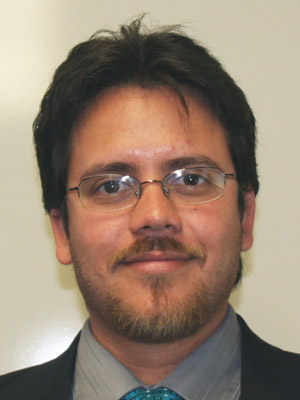By Anne Marie Amacher

DAVENPORT – Twelve law students from the University of Iowa spent their spring break in Austin, Texas, assisting at the Workers Defense Project.
Mauricio Cardona, a second-year law student at the university and member of St. Mary Parish in Iowa City, gave a presentation about the experience to staff at Diocese of Davenport headquarters March 22.
“It was a great experience. It was amazing how hard they work there,” said Cardona, a native of Columbia. He and the other students traveled to and from Texas by van – 19 hours each way.
The Workers Defense Project empowers low-income workers to achieve fair employment through education, direct services, organizing and strategic partnerships, its website says. It was founded in 2002 by employees and volunteers at Casa Marianella, an Austin shelter, to address problems of unpaid wages for low-wage workers.
Cardona said the students assisted with issues involving wage theft, payment of tips, hotel work, employment practices and incorrect job classifications.
Victims of wage theft seek help and solutions. They leave with homework intended to help the victims and the volunteers work together to find a solution.
Many of the volunteers at the center are former wage-theft victims as well, Cardona pointed out. They understand what other victims go through.
Volunteers learn about applicable laws and receive training and materials to help them assist clients trying to figure out the next step.
During their volunteer work, the law students divided into teams to work on specific areas, such as researching Texas law.
“I didn’t understand wage theft until more recently,” Cardona admitted. “There are people who don’t get paid for their work. Then they are unable to pay their bills.”
The Workers Defense Project has helped write contracts between employers and employees regarding minimum wages and when work breaks can be taken. Volunteers go to sites to make sure contracts are being upheld. They pressure employers to pay their employees.
Cardona said undocumented people have some rights, including the right to be paid for work done.
Some employers threaten to fire workers or go to Immigration and Customs Enforcement (ICE). “But there is retaliation protection. There are laws to protect the (undocumented) workers.”
Cardona was impressed with the Workers Defense Project.
“They are committed people. Yes they (deal with) barriers of language, literacy and legal status, but the people who seek help stand taller when they realize someone there has gone through the same thing they have and is willing to work with them.
“A crime is a crime,” he said.
The law student group has been invited back to Austin. The Workers Defense Project has even agreed to take an unpaid intern over the summer if a student wishes to work there.
Cardona noted there is interest in a workers center in Iowa to address lost wages, injuries and help recover money owed to people.
He thanked the diocese for helping with some of the expenses of the trip. “We are very grateful.”







